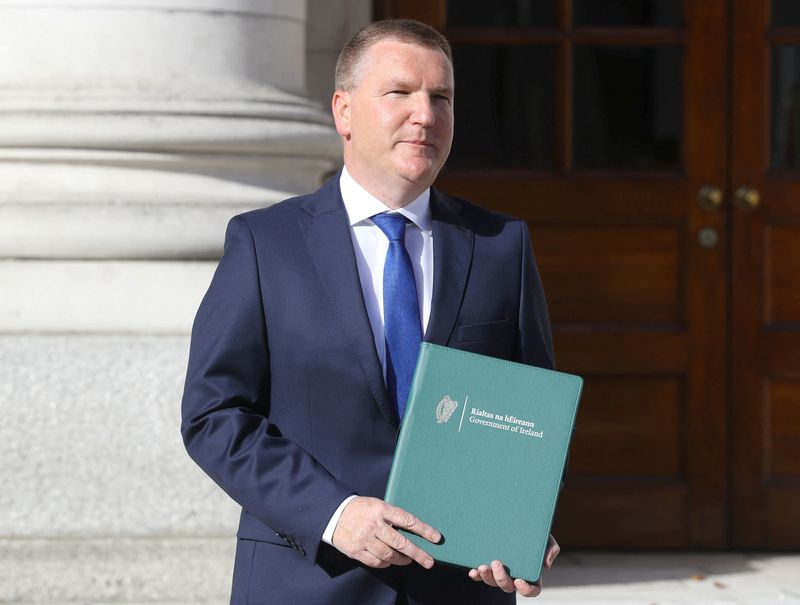DUBLIN (Reuters) - Around one in three Irish firms deferred taxes at the end of last year, amounting to 2.9 billion euros ($3.28 billion) in total unpaid bills, under a government scheme to help them stay open through one of Europe's toughest COVID-19 lockdown regimes, data showed on Thursday.
The government introduced the tax warehousing scheme at the start of the pandemic and last month extended the period whereby liabilities arising can be deferred to the end of March, as it cut the opening hours of hospitality venues and shut nightclubs in another tightening of restrictions.
The 100,900 firms on the scheme will not have to pay any interest on the debt until the end of March next year, after which a rate of 3% will apply to any amount outstanding.
Some 23,000 firms are also availing of a separate wage subsidy scheme, with the state helping to pay the wages of 267,700 employees or just over 10% of Ireland's workforce, the data from Ireland's Office of the Revenue Commissioners showed.
The finance ministry's chief economist said on Wednesday that the scheduled withdrawal of the scheme at the end of April represented a risk to the economy as some firms are surviving because of the state supports and may not be viable thereafter.
"There will be scarring effects," Public Expenditure Minister Michael McGrath told the same news conference on Wednesday.

"We don't know for sure the extent of the damage that has been done to individual businesses and sectors, and it's going to be like removing a bandage to see what the wound is like."
($1 = 0.8839 euros)